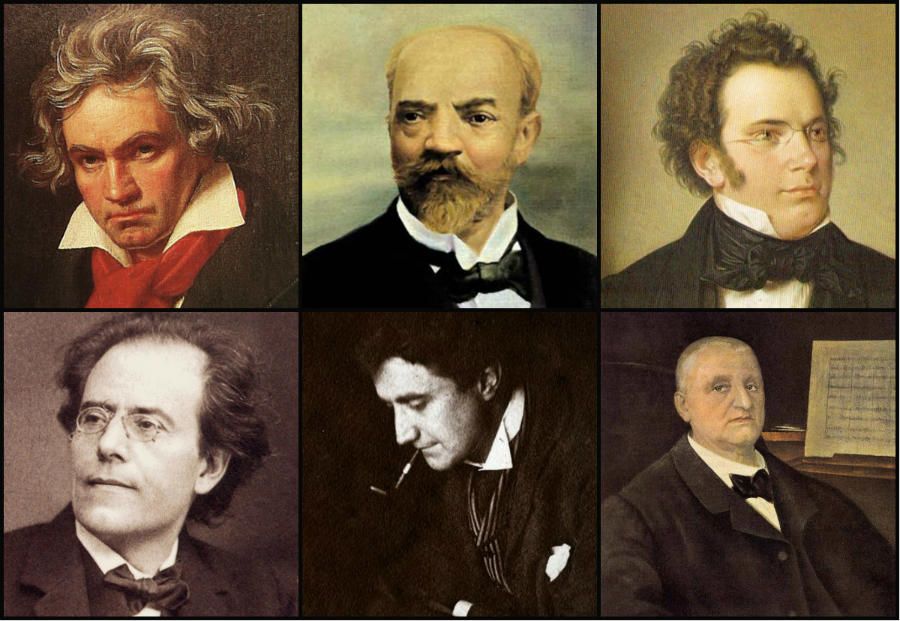
Musicians' Superstition
In our daily life we hear of many superstitions. For example, you cannot whistle at night or the ghosts would come to you, and if you break a mirror, you would have seven tears of bad luck. Superstitions are in many aspects in our lives, including moving place, important events like getting married, and at work, etc. Many people know that people doing jobs for instance, doctors and firefighters, have their taboos at work (sometimes they receive gifts, but they will definitely not accept pineapples). But do you know even musicians have their superstitions? The following two superstitions, The Curse of the Ninth and 27 Club are two infamous superstitions for musicians.
The Curse of the Ninth is a superstition in the history of classical music. It is a belief that the ninth symphony would be a composer’s last piece, and the composer would die when they worked on the ninth symphony, after finished the ninth or before finished the tenth. It is believed that the curse started from Beethoven. After he finished the ninth symphony, he soon passed away and was unable to finish his tenth symphony. Famous composers after Beethoven seemed to be affected by this curse. Many composers would not write the ninth symphony in order to avoid the curse. For example, Mahler, who is well-known of his symphonies nowadays, chose not numberings his ninth symphony to avoid the curse, and thought that he broke the curse. However, he died after the complete of the ninth symphony. Many famous musicians could not get away from the curse, but it is said that Shostakovich broke the curse. Under the government of Soviet Union, musicians faced serious censorship back then, and the contents were limited. The Soviet governments once asked Shostakovich to write a symphony to praise the government and the leader Stalin. Instead, Shostakovich wrote his symphony in an ironic tone. In the third movement he borrowed some parts of Beethoven’s and Mahler’s ninth symphonies and used the parts in his symphony, and that was his ninth symphony. In Shostakovich’s whole life, he composed 15 symphonies.
27 Club relates to a superstition that those famous and talented popular musicians die at the age of 27. At first, people found that many popular musicians died at 27 years old. For example, four famous 27 club members, Brian Jones, Jimi Hendrix, Janis Joplin, Jim Morrison were all died at 27 years old out of coincidence. So, people referred these musicians as a member of the27 Club. Nowadays, the club not only has popular musicians but also has artists, actors, and athletes. The “club” consists of many members who died because of drugs, alcohol, suicide, and accident. Those members who used drugs and alcohol had more chance to die at young ages. As for the other members, people are curious about their deaths are coincidence or fate.
The two superstitions are coincidentally related to music, and death. Why the coincidence of musicians' deaths draws many people to be curious may be that people feel sorry of losing such talented people in our world.